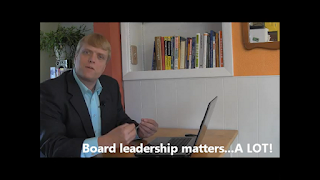Passion is important. Yet in delivering a presentation there’s so much that just can’t be covered up by your passion for the topic. I’ve seen plenty of presentations and pitches both in large and small settings. Whether you’re going to present at a large conference or in front of a small group of donors, focusing upon presentation basics will give you a big leg up on your competition.

Over the past decade I’ve delivered 300-400 presentations and sat through another 500-600. That’s a broad range of speaking environments. In order to help you get the most out of yourself (and your audience) at your next presentation, follow some core principles. There are things to do and things to avoid. Heed this advice and you’ll succeed the next time you step up in front of a crowd.
Don’t Count On Props, Paper Or PowerPoint
By relying upon your equipment you give up control…you are dependent upon all the support systems working perfectly. This reliance spells trouble if the power goes out, or the PowerPoint is not compatible or the staff did not copy your handouts. There is nothing more painful than watch a presenter stumble around for ten minutes at the start while they try to resolve ‘technology issues’. Don’t get caught in that trap.
As an ‘early adopter’ of PowerPoint I was forced to learn this lesson. Previous versions didn’t work with newer versions or with the plethora of LED projectors. I’d have slides in advance assured that ‘Oh yes, it’ll work with Windows95 and our Ricoh projector”, only to get there and discover differently. Since I couldn’t always haul my own equipment around, I crafted presentations that worked with or without PowerPoint. A valuable lesson.
You must be able to deliver the content by itself. Spend a little time watching various speakers at TED events. The most engaging ones such as Ken Robinson use no props or slides. You should be able to deliver ANY presentation without them. Just you…on stage….alone. So develop your presentation without those props. In a future post I’ll show you how once you’ve crafted a stand alone presentation, you then fold in props, paper and PowerPoint to enhance your message.
Practice, Practice, Practice
It takes a lot of practice to give an off the cuff presentation. By this I mean that by rehearsing you’ll be more relaxed and then appear more conversational….and thus better to connect with your audience. However, there is a danger in over rehearsing. This happens when you come off as programmed…rigid…too unnatural.
It happens a lot. There are plenty of ‘circuit speakers’ who ply their trade at business conferences. They parachute in for an afternoon, deliver a canned talk based upon their latest book, then whisk away to their next gig (with a fat check from conference organizers). While technically perfect, they never connect with me. I often think, ‘Dang, I could have stayed home and watched this online”.
But rehearsing is important, especially for timing. If you have 30 minutes, it’s better to go 25 than 35. In fact you’ll lose your audience at 31. There’s something in the human brain which operates like a calendar. So if you say your talk will go till 2:00pm, at 2:01 their brains are moving on to the next session (although their bodies may still be with you). Go short…always. It also gives you greater flexibility. More than once I’ve been asked to present for 45 minutes at a staff meeting only to discover their agenda has run long and could I “just take 30 minutes to give us your talk”. If you know your material and have rehearsed, you’ll quickly pare down in order to deliver your message in a more concise format.
Practicing make a gigantic difference. You soak in your material and keep your presentation fresh. Know your message but don’t be scripted. Know the key points you want to deliver, but don’t get married to wording. It lets you be more relaxed and conversational, so you’ll genuinely appear that way to your audience.
Keep The Focus Upon You
You are the star. If you prepare accordingly and know your stuff, then the technology, props and handouts will augment the presentation rather than overshadow it. The classic graphics guru EdwardTufte wrote a searing critique of PowerPoint and how it has became a crutch which ultimately delivers less information. He is also the source for the humorous quip “Power corrupts, but PowerPoint corrupts absolutely”. His point is well taken. That simple, direct information can be clouded by reliance upon software which makes things visually appealing, but ultimately confusing.
 |
| Watch your audience eyes glaze over |
Since the focus is upon you, the power is yours as well. You are free to make mistakes that no one need to know. You can forget a point but since there are no slides or handouts to follow no one will recognize that you did. Just keep going because that’s what professionals do. The audience will never know unless you tell them....so don't.
Become A Star
If you free yourself of dependence upon Props and PowerPoint, continue to Practice, and remember to keep the focus upon you, you’ll notice a huge improvement in your presentations. How you prepare, how you perform, how you react – that’s all on you. That’s what you want the audience to remember…you. The coming years will demand better presentation skills. If you can master the basics, then you’re well on your way to become a SuperStar of the next generation.

2 comments:
Toastmasters! Don't forget what you said about Toastmasters!
i fall alseep at most conferences. ...zzzzzz too many boring talks too many bad powerpoints
Post a Comment